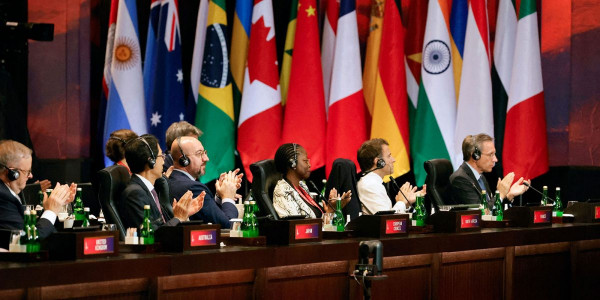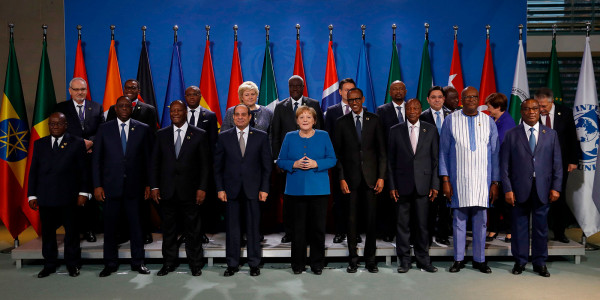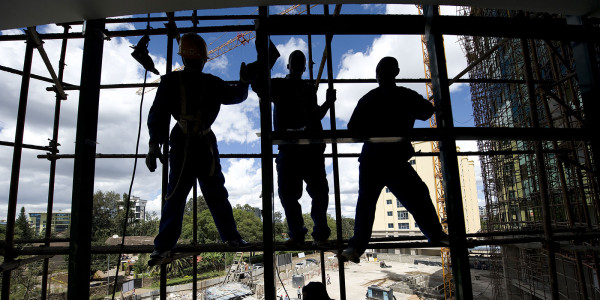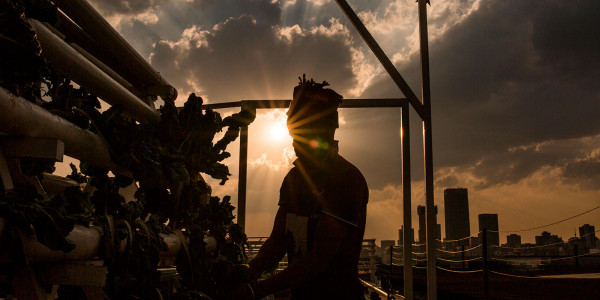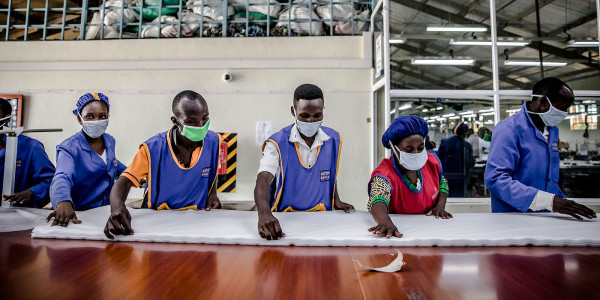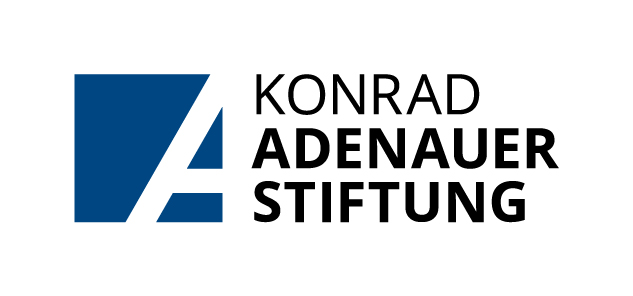Our G20 Toolkit is designed to help Africa, and the global partners who follow the G20’s engagement with Africa, to track the group’s commitments to the continent. This is a key resource for Africa-watchers, G20-watchers, and those who are concerned about the continent’s future in the global economy.
Countries of the G20
Countries in blue represent the members of the G20. As an entity, the European Union is also a member, but not all countries within it are. The countries in gold show the last five presidencies of the G20. Brazil has assumed the G20 Presidency for 2024.
The G20 is a group of the world’s 19 most powerful countries, and the European Union and African Union. Prior to the AU joining, the G20 made up approximately 85 of global GDP, 75% of all trade, and two-thirds of the world’s population. The African Union brings a combined GDP of $3 trillion and a population of 1.4 billion. The G20 has positioned itself as the preeminent platform for discussing and solving pressing global issues. Established in 1997 in the wake of the Asian financial crisis, the group has since promoted multilateralism, a global agenda for sustainable development and international economic and financial stability. It notably emerged as the primary forum for addressing the financial crisis of 2007-2008.
The annual G20 summit sets the agenda for the world on a host of issues. Most prominently, it decides norms for trade – an increasingly fraught job. It also draws up plans for tackling a myriad of pressing problems, including climate change, migration, the future of jobs in the face of automation, and how to support development in Africa.
Despite its pivotal role in Africa’s future, the continent has traditionally had little say in the inner workings of the G20. Only one African country (South Africa) was a permanent member, until the African Union was formally admitted during the 2023 Indian Presidency. The African Union Development Agency maintains observer status. AU’s admission as a full member of the G20 is is significant because the G20 is about reforming and dealing with the challenges of the global financial architecture, which has a big impact on African economies.
SAIIA has been a longstanding member of the Think 20 (T20), a group of international think tanks that make evidence-based policy input – from climate change to peace and security and beyond – into the G20’s decision-making process. In 2017, under the German presidency of the G20, SAIIA with other like-minded think tanks, most notably the German Development Institute, proposed the establishment of a T20 African Standing Group. This group focuses specifically on African issues, and crucially shapes the G20’s engagement with the continent to ensure more impactful work on African concerns by the G20. This toolkit is designed to support this objective and is a user-friendly information hub for policymakers, academics, researchers and other interested stakeholders, enabling them to better understand the work of the G20 in relation to Africa.
G20: a massive impact on Africa’s future
Priorities decided at the G20 have a massive impact on Africa’s future. Decisions about norms such as infrastructure financing have a direct bearing on the continent’s options in providing for its own people. When Africa finds it difficult to make its voice heard in the G20, it means it has little support for initiatives that will make a key difference in African governments’ effectiveness. Getting support to take on tax evasion by foreign companies has been an uphill struggle, for example.
And yet, the G20 is increasingly putting Africa on its agenda. It has a number of initiatives specifically focused on African development, including the Compact with Africa, a pioneering plan to boost foreign direct investment in African countries through enabling domestic economic reforms. It is therefore crucial for Africa to empower itself by learning more about the influential body, and exactly how it shapes the continent’s choices.
It is also important to recognise critical developments that are underway in Africa. Africa has shown strong commitment towards the 2030 Agenda for Sustainable Development and the African Union’s Agenda 2063 has defined a vision and action plan to support long-term sustainable development on the continent. Furthermore, the new African Continental Free Trade Area (AfCTA) agreement has been hailed as a huge step forward for intra-continental trade in Africa. In this context it is important to explore how Africa can engage more effectively on G20 issues given the G20’s pre-eminent role as an important platform for multilateral engagement. Many of the issues discussed at the G20 and policies that emerge out of the G20 directly impact development in Africa and cannot be advanced without meaningful engagement by African countries.
Toolkit explained
The SAIIA G20 Toolkit is designed to help Africa, and the global partners who follow the G20’s engagement with Africa, to track the group’s commitments to the continent. The toolkit is a one-stop collection of key resources that covers how the G20 impacts on and engages with Africa. It provides links to dedicated websites for each G20 presidency from 2017 onwards, briefings on a wide variety of issues covered by the G20, and a specialised knowledge hub focusing exclusively on infrastructure provision.
It also features the full coverage of the work of the T20 Africa Standing Group – a key resource for those working on African development.
The SAIIA G20 Toolkit grows out of SAIIA’s own comprehensive tracking of the G20-Africa relationship. SAIIA is a convener of the T20 Africa Standing Group and is one of the only think tanks in the world that consistently undertakes Africa-centred G20 research. SAIIA’s work is key to understanding the relationship between the G20 and the African continent. The SAIIA G20 Toolkit continues and deepens this work. It provides year-by-year analysis of the group’s impact on African development, its commitment to Africa’s Agenda 2063 development blueprint, and its evolving plans for African investment. SAIIA also consistently focuses on the core issue of how Africa can make its voice heard in the G20. The SAIIA G20 Toolkit is a key resource for Africa-watchers, G20-watchers, and those who are concerned about the continent’s future in the global economy.
This toolkit explores more closely what commitments the G20 has made to Africa, how decisions made by the G20 are affecting Africa and how the relationship between the G20 and Africa can be enhanced and leveraged to better advance Africa’s 2063 Agenda. The toolkit also links the reader to additional material through sidebar links:
- The G20 material covering the German presidency onwards;
- The T20 research produced for the past five presidencies;
- Information on the T20 Africa Standing Group;
- The Compact with Africa website;
- The Global Infrastructure Hub website; and
- SAIIA’s website – linking the reader to all existing SAIIA publications on the G20 and T20, profiling the work SAIIA has done in this respect.


